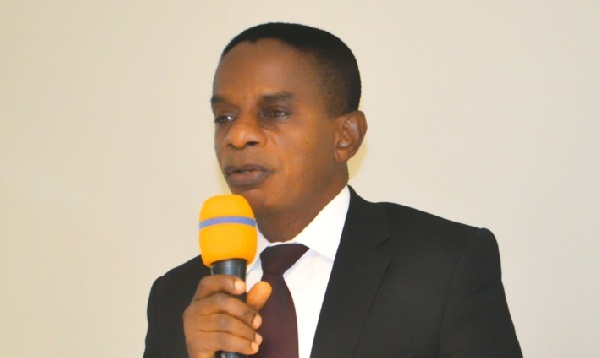
Audio By Carbonatix
A law auditing expert says the Auditor General (AG) lacks the political will to surcharge principal spending officers for supervising financial irregularities within the various State Owned Enterprises (SOEs).
Professor Samuel Antwi said although the law gives the AG the power to surcharge, he could be afraid of losing his job since his appointment is political.
He said the AG might be removed should his activities mount pressure on the government in power.
"I think it's lack of political will on the part of the Auditor General. The law has given you power, what again are you looking for?" he quizzed.
"Let's understand the recent history of the office of the Auditor General. They [A-Gs] interface a lot with politicians and powers that be.
"When the Auditor General tries to act according to some aspects of the law, reference to recent times - of course, the Auditor General is appointed by the president so if they see that you're getting too hard on them, you can lose your job.
"You have security of tenure but they [politicians] can make your life a little bit difficult as an auditor general," he explained.
"Surcharge the principal spending officer who refused to do his work," he emphasized.
Nonetheless, the AG needs to call "the bluff of the politicians" and operate according to the law, Prof Antwi added.
According to him, it is the only way the country can properly manage and account for its finances.
The expert iterated that the country needs to be serious with its financial management.
He decried government's recent pursuit of an IMF programme, saying that the financial irregularities revealed in the AG's report could have been worth more than the $3b bailout request from the IMF.
This, he said, could have helped build many hospitals and solve other pertinent issues.
The AG's report disclosed a disturbing amount of over ¢15 billion loss due to irregularities.
According to the report, outstanding debts and loans recoverable from the total loss amount to 99.37%.
There are also cases of payroll irregularities hovering around ¢11m. Amongst these, there are procurement and contract irregularities.
The country has been experiencing financial losses over the years. Significant are those from 2018 to 2022.
In 2018, it was ¢3 billion, then moved to ¢5 billion in 2019. In 2020, it shot up to ¢12 billion, increased to ¢17 billion in 2021 then finally dropping a little to ¢15 billion in the year under review, 2022.
Latest Stories
-
AU flatly rejects Somaliland bid, reaffirms Somalia’s unity
47 minutes -
Mali rally to claim draw against AFCON host Morocco
60 minutes -
Man City players ‘incredibly disciplined’ – Guardiola
1 hour -
How to get rid of unwanted Christmas presents – without being found out
1 hour -
Zelensky plans to meet Trump on Sunday for talks on ending Russian war
2 hours -
Thousands of US flights disrupted as winter storm looms
2 hours -
US judge blocks detention of British social media campaigner
2 hours -
Gun Amnesty: Greater Accra leads in weapons surrendered
2 hours -
Dave Bishop outlines vision as he seeks Ghana Boxing Federation executive board position
2 hours -
Former Ivory Coast coach Gasset dies
3 hours -
An Open Letter to the Deputy Attorney General, Dr Justice Srem-Sai
3 hours -
Humour at its finest at Kumasi Comedy Show
4 hours -
Police Christmas special operation: 101 suspects arrested in Greater Accra
4 hours -
15 arrested after sporadic shooting at Ho central mosque
4 hours -
GES condemns alleged theft of food supplies at Awaso STEM SHS
5 hours

